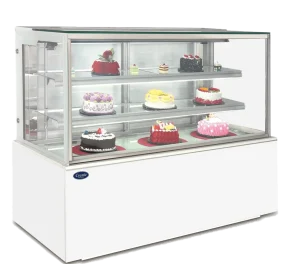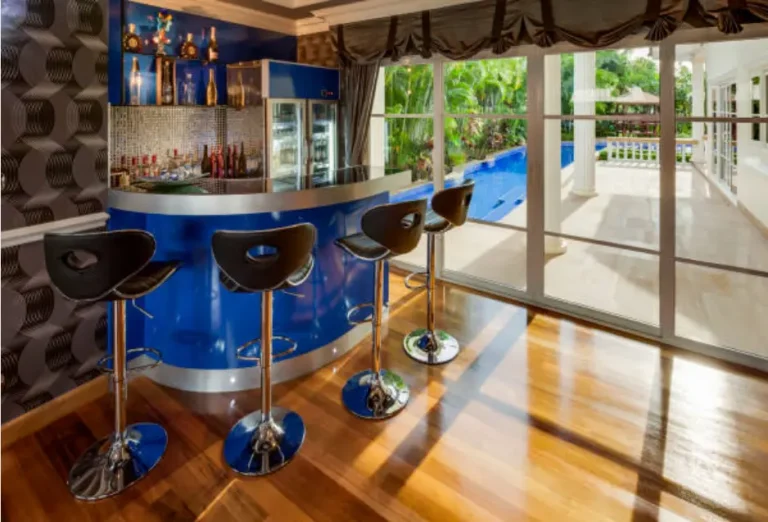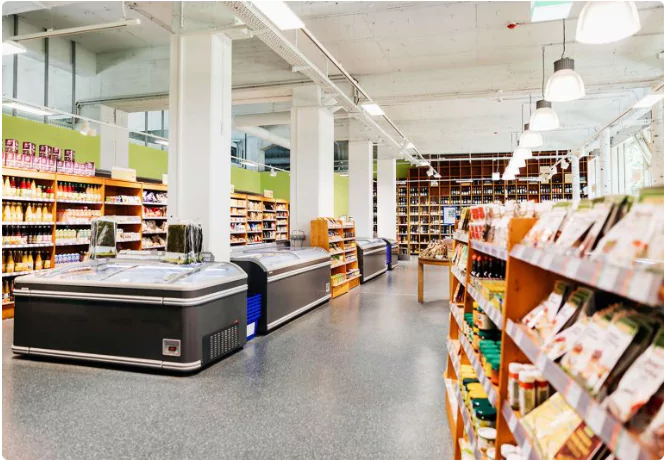Selecting the commercial fridge is a crucial choice for your business, as it impacts your day to day activities and the quality of your food offerings and also influencing your overall financial performance. This helpful guide will lead you through considerations to help you make a well informed decision tailored to your unique requirements.
Understanding Your Needs
1. Assessing Storage Needs
Considering how food you’ll be storing and how often you’ll need to get to it quickly if necessary. Then, think about whether you need refrigeration units for display purposes or just for keeping food fresh and safe from spoiling.
2. Evaluating Costs
Defining your budget is crucial when choosing a refrigerator, because you need to factor in both the price and the long term energy expenses involved with it. The total expenditure on buying and upkeeping your refrigeration equipment can be different, depending on its features, size and technology used.
3. Determining Accessibility and Space Constraints
The layout of your kitchen or store determines the refrigerator size for your space. In a kitchen area, an under-counter fridge could be the best option to save floor space while a walk-in unit might be more suitable for larger areas. Ensure that you accurately measure the space for the fridge and consider any doorways or corridors it needs to go through. Adequate space around the fridge is significance for proper ventilation. You might think about whether you require a unit with doors to save energy or full swing doors for easier loading and unloading purposes.
4. Understanding Temperature Requirements
Various types of food need temperature conditions to prevent bacteria from growing and keep their quality intact. It’s important to select a refrigerator that can maintain the temperature range for the specific products you plan to store. Many commercial refrigerators come with compartments that allow you to store different items at their optimal temperatures.
5. Choosing a Style and Configuration
The type of business you have should influence the design and setup of your refrigeration units. Consider using a reach-in fridge with glass doors for a cafeteria or a pizza prep table with fridges for a pizzeria. For a bar setting you might want to look into a bar fridge that fits nicely under the counter. There are also types of specialized refrigerators to consider, like milk coolers and floral coolers. Don’t forget to think about how the look of your fridge blends in with your decor scheme.
6. Considering Food Quantity and Menu
The quantity and types of food you need to store will influence the refrigerator you choose to purchase. For instance, a deli might require a refrigerator with plenty of room for types of meats and cheeses. It’s important to consider factors, such as the size of your family or the daily number of customers you cater to and your storage practices.
Key Features of Refrigerator to Consider
Once you’ve figured out what you’re looking for in a refrigerator, you can start thinking about features like its capacity and dimensions as well as details, such as the type of door and the location of compressor.
1. Capacity and Dimensions
When selecting a refrigerator, it’s crucial to think about its size and dimensions, which not only for storing food, but also for fitting seamlessly into your layout. An oversized unit could take up room while an undersized one might restrict your storage options. Ensure that the fridge you picking matches the amount of food your business deals with every day and the number of customers you cater to.
2. Door Types and Materials
In the world of refrigerators, you’ll find a variety of door options and materials to choose from, including glass doors, solid ones, etc. Glass doors make it simple to see what’s inside making them handy for settings while solid doors provide superior insulation and energy efficiency benefits. Another factor to consider is opting for a model with E coated glass to enhance energy efficiency.
3. Compressor Types and Location
The compressor plays a role in the refrigeration system and where it is placed can impact how well it works and how easy it is to maintain it properly. Usually compressors located at the top don’t draw in much dust and grease from the kitchen, which can mean less cleaning is needed regularly. Bottom-mounted compressors are often easier to reach and might be better in warmer environments where heat tends to rise. When selecting a compressor for your needs make sure to go for one that’s both dependable and energy-efficient.
4. Shelves and Storage Configuration
When setting up the shelving and storage in your fridge keep in mind the flexibility that adjustable shelves offer for storing items easily accessible. You might consider having sections for specific products.
5. Defrost Mechanism
The automatic defrost function is a feature that helps you save time and energy by preventing ice buildup and keeping the unit running smoothly. It also gives you the option to select either a self-contained or a remote refrigeration system. Self-contained units work well in areas, while remote systems offer quieter operation.
6. Maintenance
Regular maintenance plays a role in how long refrigeration equipment lasts and how well it performs over time. The more straightforward the maintenance process is, the less time the unit you choose will spend out of service.
7. Safety and Durability Features
Your fridge should be strong and able to handle use with safety measures in place such as non slip flooring in walk in models and secure door handles to reduce accidents; opt, for a refrigerator constructed from sturdy materials.
8. Warranty and After-sales Support
The warranty and post purchase assistance provided with the product can often be used to assess its quality. A comprehensive warranty can decrease repair expenses and efficient after-sales service can guarantee the resolution of most problems.
9. Evaluating Energy Efficiency Ratings
When shopping for refrigerators, make sure to check for the ENERGY STAR label as it shows they meet energy efficiency standards. This label indicates that the appliance is typically at least 15 percent more energy efficient than the basic federal requirement. In Canada, keep an eye out for the EnerGuide label which gives details on energy usage in kilowatt hours. Additionally, the California Energy Commission (CEC) sets a standard for energy efficiency that you can refer to.
Seeking Professional Advice
The realm of refrigeration can often seem intricate to navigate through successfully, but consulting with experts and seeking their guidance can steer you towards making the optimal decision for your business needs.
Researching Reputable Brands and Manufacturers
When choosing your commercial refrigeration equipment, it’s crucial to do research into trustworthy brands. Prioritize manufacturers that provide customization choices tailored to your requirements, like createrefrigeration, a company that specializes in providing commercial refrigeration solutions and offers a variety of products, such as glass door freezers and coolers, island freezers, multideck open chillers, and more. They have over 25 years of refrigeration experience and their products are certified by CE, GS, CCC, CB, ETL, PSE, RoHs, GEMS, IEC, SABER and other certifications and also offers a wide range of solutions for the catering industry, supermarkets, and food retail. Createrrefrigeration also provides OEM services for many world-renowned brands.
FAQs
Here are some common questions that may guide you in choosing the option, for your business.
1. How can I ensure my refrigerator lasts longer?
Perform regular maintenance such as cleaning condenser coils, checking door seals, and defrosting as needed.
2. How can I cut costs when purchasing a fridge?
Opting for an energy model or exploring a pre-owned or refurbished option can lead to cost savings.
3. What are some typical errors individuals tend to make when purchasing a fridge?
Failing to measure your space before making a decision on the style you prefer, overlooking your long term storage requirements as well as neglecting to account for installation plans.
By investing effort into contemplation of these aspects, you can arrive at a well informed choice that will positively impact your business in the long run.





















